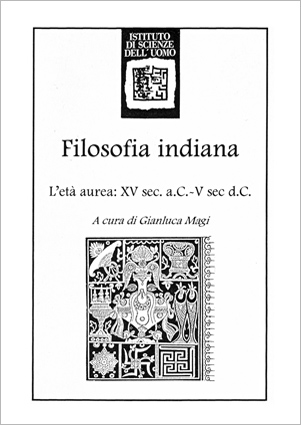
|
|
Indian Philosophy
____________________________________________________________
The Golden Age: XV century b.C. - V century A.D.
Rimini 1997
Edizioni della Scuola Superiore di Filosofia Orientale e Comparativa
pp. 50
Out of print
____________________________________________________________
This booklet, published on the occasion of a course of lessons, briefly describes the history of the Indian philosophy, starting from the ancient religious-speculative documents, the Veda and the Upanishad, to more evolved productions of Buddhist schools, passing through Brahman schools, Jainism and materialism.
It stresses on self-fulfilment and liberation: the common aim of the different Indian schools. This practical concern of the Indian philosophy, hardly remarkable in the Western thought, requires a personal sharing in the matters, right because it aims at the transformation of the individual consciousness. In this meaning, an approach, which is only historical-philological, would avoid a greater comprehension and would not lead anywhere. If you study the Indian philosophy only following the rational pattern, which is typical, for example, of the erudite approach, you would not get the message it wants to give, nor understand in which way these theories were not theories, but points of view that involved a different behaviour towards the world. The Indian philosophy requires that the message is received while living the message it is giving or, even better, that one becomes aware of being the message itself. This is a very hard task, since we are accustomed to get things only from an intellectual point of view.
|